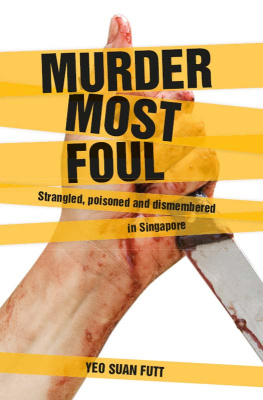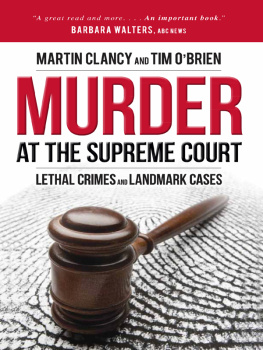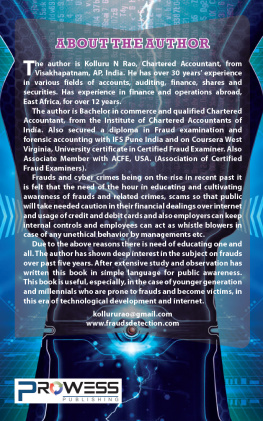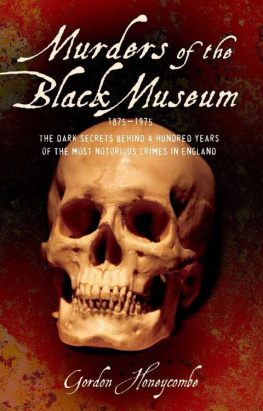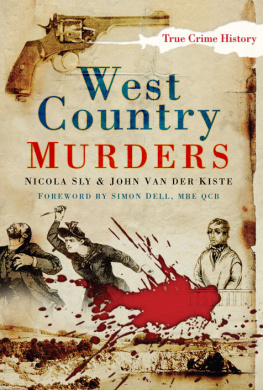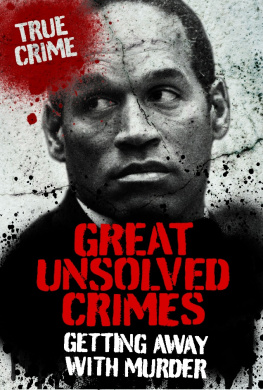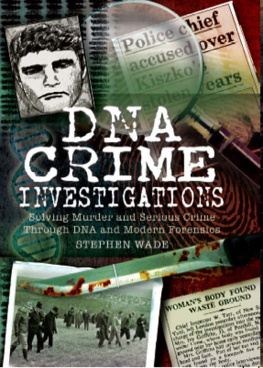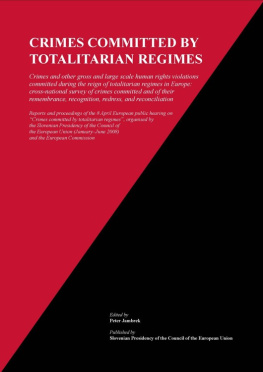MEN MISBEHAVING

Men who commit murder, fraud and
other crimes in Singapore


2014 Marshall Cavendish International (Asia) Pte Ltd
Published by Marshall Cavendish Editions
An imprint of Marshall Cavendish International
1 New Industrial Road, Singapore 536196
All rights reserved
No part of this publication may be reproduced, stored in a retrieval system or transmitted, in any form or by any means, electronic, mechanical, photocopying, recording or otherwise, without the prior permission of the copyright owner. Request for permission should be addressed to the Publisher, Marshall Cavendish International (Asia) Private Limited, 1 New Industrial Road, Singapore 536196. Tel: (65) 6213 9300, fax: (65) 6285 4871. E-mail:
The publisher makes no representation or warranties with respect to the contents of this book, and specifically disclaims any implied warranties or merchantability or fitness for any particular purpose, and shall in no events be liable for any loss of profit or any other commercial damage, including but not limited to special, incidental, consequential, or other damages.
Other Marshall Cavendish Offices:
Marshall Cavendish Corporation. 99 White Plains Road, Tarrytown NY 10591-9001, USA Marshall Cavendish International (Thailand) Co Ltd. 253 Asoke, 12th Flr, Sukhumvit 21 Road, Klongtoey Nua, Wattana, Bangkok 10110, Thailand Marshall Cavendish (Malaysia) Sdn Bhd. Times Subang, Lot 46, Subang Hi-Tech Industrial Park, Batu Tiga, 40000 Shah Alam, Selangor Darul Ehsan, Malaysia.
Marshall Cavendish is a trademark of Times Publishing Limited
National Library Board, Singapore Cataloguing-in-Publication Data
Yeo, Suan Futt, author.
Men misbehaving : men who commit murder, fraud and other crimes in Singapore / Yeo Suan Futt. Singapore : Marshall Cavendish Editions, [2014]
pages cm
ISBN : 978-981-4561-09-9 (paperback)
e-ISBN : 978 981 4634 74 8
1. Criminals Singapore. 2. Murderers Singapore.
3. Swindlers and swindling Singapore. 4. Crime Singapore. I. Title.
HV7100.67
364.373095957 dc23 OCN883873865
Designed by Benson Tan
Cover photograph by Per Hardestam (www.freeimages.com)
Printed in Singapore by Markono Print Media Pte Ltd
Contents
Introduction

MAN CANT STOP MISBEHAVING: weve robbed, raged and rampaged; taking our hearts desire through stratagem, deceit and sheer opportunity, or else by threat, force and violence.
In this volume are stories of men who have stepped beyond the bounds of decency, and those caught in the nightmare of anothers making. Among them are civil servants who betrayed the public trust, men who abused their positions to prey on the very people they were supposed to protect, and an overseas student who woke up to the sight of his friends bloodied beyond recognition.
Some of these perpetrators were caught within days of their crime, while others quietly robbed and betrayed for years before their wrongdoing was uncovered, while yet another waited eight years for a ruling to be overturned. At the end of the day, crime doesnt pay. But some will never learn.
CHAPTER 1
Public Disservice: The Hidden Hand in the Till

We have prevented corruption from becoming a way of life in Singapore, and succeeded in keeping Singapore clean. This differentiates us from many other countries and is a distinctive part of what makes us Singapore.
Deputy Prime Minister Teo Chee Hean,
at a parliamentary sitting on 15 August 2013
A NATIONAL IDEOLOGY CAN be defined as a body of common beliefs held by a group of people that makes them a nation. Besides multi-racial co-existence and a fastidious work ethic, an important element of Singapores national ideology would also include an incorruptible civil service enshrined in the national psyche. This is something that sets us apart and comes as instantly to mind as the ban on chewing gum when people mention Singapore. It is an essential ingredient of Singapore Inc. that has allowed us to progress in bold steps from Third World to First.
The fair distribution and efficient administration of public goods and services is our pride and near conceit; hence the blow to our confidence in 2010 when it emerged that two executives of the Singapore Land Authority (SLA), working in collusion with the private sector as well as scam firms, had filched the state of more than $12 million over a period of two-and-a-half years. The irony was all the more stinging when that very same year, Berlin-based Transparency International rated Singapore jointly with Denmark and New Zealand as the least corrupt nations in the world (Singapore dropped to fifth place the following year and in 2012).
There was a public outcry. Inquiries were held, rules and procedures were reviewed and new ones were instituted. Independent review panels were also set up and the books were opened as the public sector went into damage control mode. When perpetrators are caught, it is a sign that the anti-corruption measures work. But there is always the underlying suspicion that reported cases are but the visible tip of an iceberg.
These fears were shortly realised with almost poetic symmetry when two more cases emerged. Where the SLA case had corrupt officials in the same department working in collusion, these were two unrelated cases happening simultaneously in the Ministry of Home Affairs and Ministry of Foreign Affairs across the height of the civil service hierarchy. One involved a junior clerk and the other, a medalled head of department.
MHA: LIEW CHEE MENG, AGE 37
The Ministry of Home Affairs (MHA), also known as the Home Team, is an umbrella group of agencies tasked with maintaining law and order within Singapore. These agencies include the police force, internal security, immigration and checkpoints, anti-narcotics, civil defence and casino regulation authorities.
Liew Chee Meng joined the MHA in July 2003 as a junior clerical officer in the Strategic Planning and Development Division (SPDD). Here, he was tasked with buying and processing payments for prizes used in activities and competitions organised by his department.
As a junior clerk, Liew would not have had much autonomy in any matter. Instead, his supervisor would have to authorise purchases of particular prizes for specific activities. Liew would then make the necessary submissions to the finance department, and the latter would then release the funds for the procurement. Nothing could be more routine than this sequence of procedures followed in millions of offices worldwide, spanning the public and private sectors. But after a few years of this routine work, Liew started to get creative.
CUT, PASTE, SEND
Perhaps the senior director overseeing Liew was too bogged down by other duties. Instead of his senior initiating the purchases, Liew would send him emails listing the items to be purchased, and approval would be granted via email. Ecologically, this was the more responsible course. However, the use of emails instead of signed documents allowed Liew to cut and paste his senior directors email responses and signature to forge purchase approvals, which were then accepted by the finance department.


